Affiliate links on Android Authority may earn us a commission. Learn more.
Windows 10 goes mobile, what does it mean for Android?
Published onJanuary 22, 2015
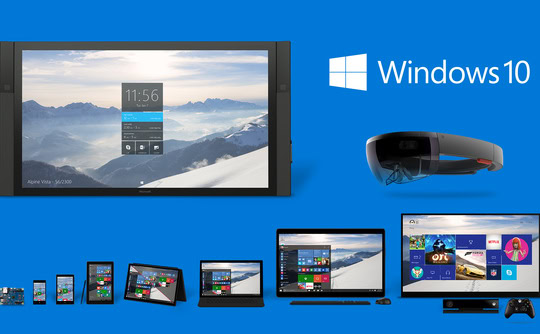
Microsoft made a few huge announcements yesterday, primary of which was the introduction of Windows 10. One huge feature stood out for us, the fact that Windows 10 will work across all of your available platforms, from the PC to your tablet, and even on your phone.
Microsoft has been struggling a bit in playing catch up with the leading mobile hardware and software vendors around the globe. Windows 8 began down the road to mobile friendly functionality, it was certainly built with touchscreen input in mind, but it somehow felt like an incomplete operating system to many, with a UI that made sense for a tablet experience, but lacked in old school Windows functionality on the desktop.
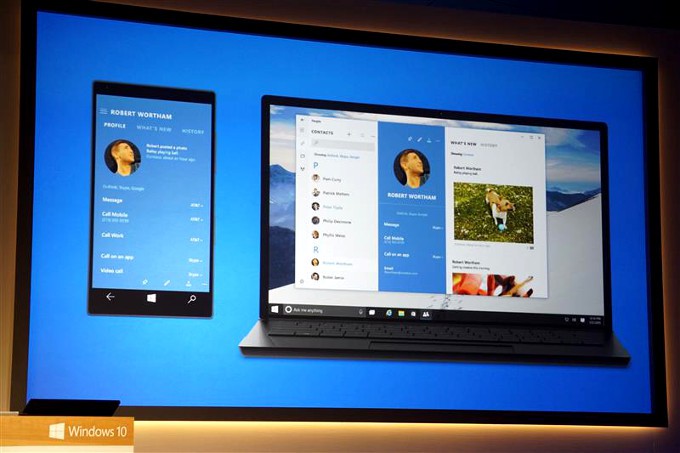
While Windows 8 is still the prevalent desktop OS, Microsoft has had to rely on a separate OS altogether for mobile. Windows Phone 8.1 is the current iteration, found mostly on the Microsoft owned Nokia devices, plus a small selection of HTC and other handsets.
Windows 10 is a new approach, the same OS is capable of installing on the various devices, where it offers a differing UI for each form factor. From what Microsoft showed off in their announcement, the phone UI brings with it the typical functionality we have all come to expect from our mobile devices. Home screens, settings menus, a phone book, a web browser and more.
What’s new
Windows 10 will rock a new web browser, code named Project Spartan. Cortana is a huge element to the new OS. Universal Apps make for a consistent experience across devices. Action Center eases settings control and syncs data and notifications across devices. Expanded Xbox integration goes beyond sharing game clips, streaming full games to your Windows 10 PC or tablet.
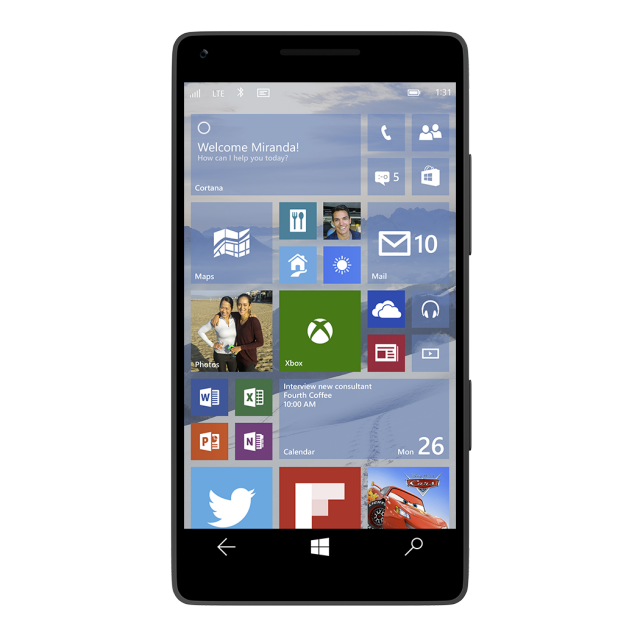
Looking at the new Universal Apps approach, there will be a few limitations as developers work around the x86 vs ARM architectures, but the goal is for one app to work on all of your gear. In addition to the app itself, there has been a focus on services.
Users familiar with the advanced photo functionality of Google+ should be comfortable with most of the Windows 10 Photo capabilities.
Your photos will show together in the Photos app, they will be automatically organized into sections and albums. Small touch-ups will happen automatically as well, such as red eye reduction. Best of all, photos will be a part of the new synchronization technology available on your Windows 10 phone in the Action Center. As is true for Google+ users, you’ll be able to get to your full photo collection regardless the device you are using.
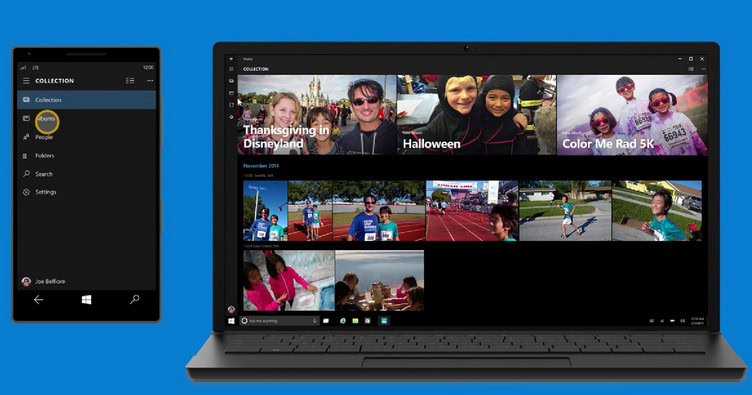
A new messaging app seamlessly jumps between your SMS and IM communications, with Skype integration bringing video to the mix.
There is even a floating on-screen keyboard in Windows 10. Just swipe with your finger to re-locate it wherever you need it.
Should Android and other mobile be worried?
This is a tough one to answer. When it comes to walking into a cell phone store, one usually has to go looking for the Windows Phones hidden on the back shelf. Android and iOS devices have all but monopolized the industry. In these spaces, Microsoft has a long road ahead of them.
When viewing Windows 10 as a service, as many business and educational institutions may do, Windows phones and tablets take on a new appeal. If outfitting a large group of your employees or students with Windows PCs, a matching Windows tablet or phone is an easy sale.
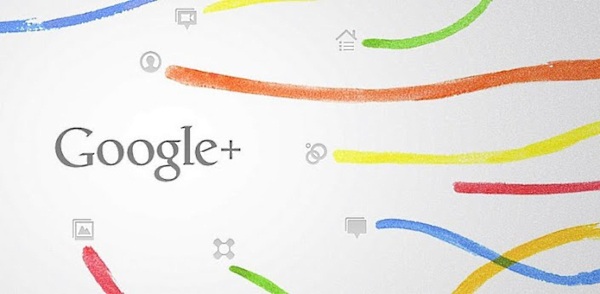
Android, for many, is a powerful OS because it integrates so well with the Google ecosystem of apps and services. Microsoft has a growing user base of OneDrive and Outlook.com users that may become very interested in a phone that directly ties into those services.
As Microsoft expands their services, Windows 10 becomes a larger threat to Android. As a side note, with all of that said, Samsung has worked hard to build their own ecosystem, a roughly mirror image of Google’s own Android apps and mobile related services. Yet, Samsung’s Tizen OS has struggled to take off, so far.
Perhaps one move that Microsoft has done right with Windows 10, is adjust their pricing structure to be more in-line with other Mobile OSs. That’s right, as you have probably already read, for a wide selection of upgrade paths, Windows 10 is free. We are eager to learn what the price will be for those not upgrading. Android remains free, and open, Microsoft will have to keep that in mind as they try to compete.
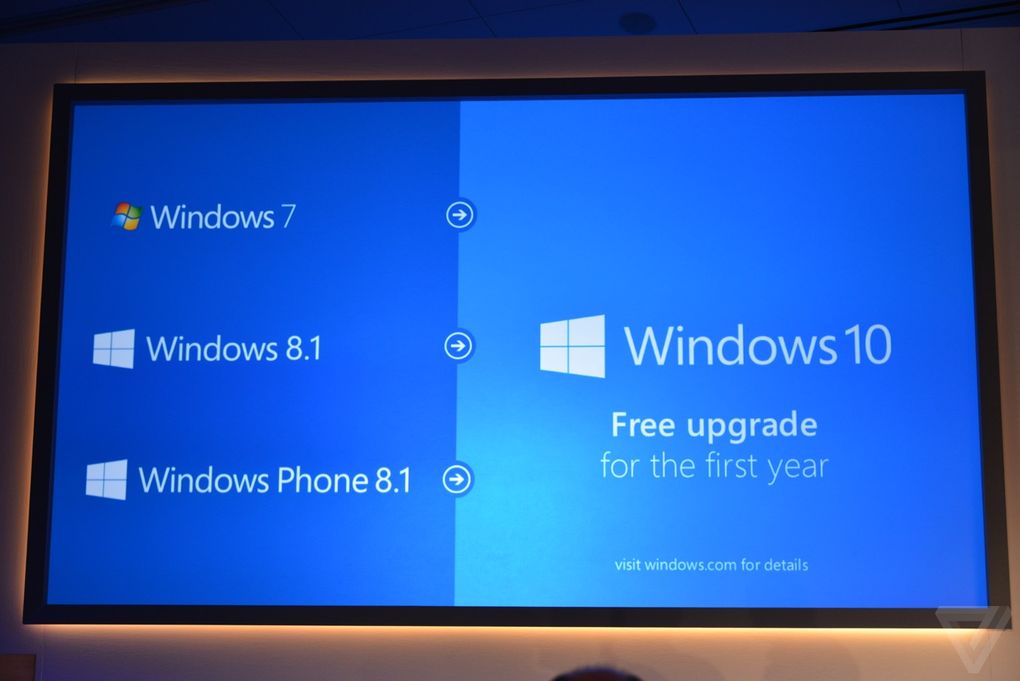
Final thoughts
If the going success of Windows Phone and the once-great Nokia are to be considered when measuring future threat to Android, we might just say that Android’s market share has nothing to worry about. However, Microsoft has had time to watch and learn, by all accounts, it appears that they are doing things right with Windows 10. We’ll have to wait and see if that translates into smartphone sales.
What do you say, is Windows 10 a viable threat to Android market share, or is this just another Microsoft OS, doomed to be mocked and kept to your PC?